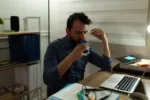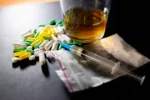
Drug Use Across Generations: From Baby Boomers to Gen Z
Substance use has always reflected the culture, challenges and pressures of its time. From Woodstock to social media, each generation has faced its own landscape of drug trends and societal attitudes around addiction. At Bluff in Augusta, we’ve seen firsthand how drug use patterns have shifted—from Baby Boomers to Millennials to Gen Z—and how these shifts impact treatment needs today.
Understanding generational substance use can help break stigma, improve support and guide more people toward the help they need.
Baby Boomers: The First Wave of Modern Drug Use
Baby Boomers—those born between 1946 and 1964—were part of a generation that saw widespread experimentation with drugs during the 1960s and 70s. Marijuana, LSD and psychedelic drugs were central to the counterculture movement. But as this generation aged, prescription drug use became more prominent.
In recent decades, many Baby Boomers have struggled with:
- Prescription opioid addiction following surgery or chronic pain treatment
- Benzodiazepine dependence for anxiety or insomnia
- Alcohol misuse, sometimes overlooked as a “social norm” in older age
Because addiction is often underdiagnosed in older adults, many Boomers didn’t seek help until much later in life—or not at all.
Millennials: The Era of the Opioid Crisis
Millennials—born between 1981 and 1996—came of age during the rise of prescription opioids and the fallout of the 2008 economic recession. This generation has been hit especially hard by the opioid epidemic, often starting with medications like OxyContin before transitioning to heroin or fentanyl.
Key trends among Millennials include:
- Opioid addiction, both prescription and illicit
- Polysubstance use, including alcohol, benzodiazepines and stimulants
- Mental health struggles, such as anxiety, trauma and depression fueling substance use
- A growing interest in seeking treatment and breaking generational cycles
Millennials helped drive the conversation around mental health and addiction into the mainstream, but many still face barriers like cost, stigma and burnout.
Gen Z: A New Set of Challenges
Gen Z—born roughly between 1997 and 2012—is growing up in a digital-first world with unique stressors: social media, climate anxiety, economic uncertainty and a pandemic that disrupted key developmental years. While some data shows Gen Z drinks and smokes less than past generations, other risky behaviors are emerging.
Gen Z trends include:
- High rates of anxiety, depression and suicidal thoughts
- Rising use of vapes, cannabis concentrates and psychedelics
- Dangerous experimentation with synthetic drugs like fentanyl-laced pills
- More openness to therapy and recovery, but also easy access to drugs via the internet
This generation is both more aware of mental health and more vulnerable to drug-related harm—especially from counterfeit or contaminated substances.
Why This Matters for Treatment
Each generation has a different relationship with substances, shaped by culture, economics and personal experiences. At Bluff in Augusta, we tailor our care to meet people where they are—not just in age, but in life stage, mindset and goals.
Whether someone is a Boomer managing long-term pain and drinking habits, a Millennial burned out by trauma and opioids or a Gen Zer overwhelmed by anxiety and social pressure, we offer:
- Personalized treatment plans
- Dual diagnosis care for co-occurring mental health conditions
- Generationally sensitive therapy that addresses the unique challenges of each age group
- Supportive, nonjudgmental spaces for healing and growth
Healing Has No Age Limit
Addiction doesn’t discriminate by age—and neither does recovery. No matter where you fall on the generational timeline, if you or someone you love is struggling with substance use, help is available.
At Bluff in Augusta, we’re here to guide people of all generations toward a healthier, more hopeful future.
Recovery starts when you reach out. Contact us today.







